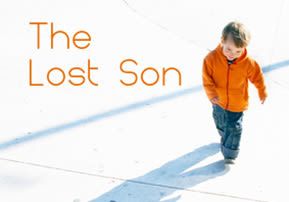
The Lost Son
It’s perfectly normal to have some good feelings about your pre-teshuva life. After all, if you didn’t have all those experiences, you wouldn’t be who you are today...

Dear Racheli,
We are BT parents with four kids, ranging in ages from 8-20. Lately, our second child who’s 17, has started rebelling. He’s changed his style of dress, gotten involved with girls, and hangs out with kids who are not good examples, to say the least. Worst of all, he says he wants nothing to do with our religious lifestyle. My husband and I are heartbroken and don’t know what to do…
Batya
Batya,
I am heartbroken for you as well. After having gone through so many years of secular life, then searching for Truth, and ultimately finding it in Judaism, you and your husband know what a difficult, long road that was. You’ve given up a G-dless life of “anything goes” mentality and replaced it with a life that can feel quite restrictive at times.
However, you’ve done so with the unwavering belief that living as a Torah-observant Jew is what’s best for you and your family. Bravo to you! It’s not easy doing a complete overhaul on your life views and lifestyle, particularly if you already have children.
That being said, there is almost no bigger challenge for a BT parent when their child intentionally rejects all of the values the parent is trying to implant in him. In terms of frustration, this probably ranks in the Top Three.
Batya, there are several factors that you must look at in order to get a clearer understanding of why your son is  rebelling.
rebelling.
First, take an objective look at your family life. Are you and your husband very demanding of the kids? Do you run your house like an army base, especially in the spiritual areas? For example, if one of your kids sits down to eat Shabbat dinner without having washed their hands first (netilat yadayim), do you get mad and force them to do it? Or do you mention it in a nicer way?
Look in particular at the types of arguments you have with your children, especially your 17-year-old. What are they mostly about? Do you notice that perhaps the arguments are mostly about their religious obligations?
If this is the case, then you must realize that for a child, growing up in a house that’s run by Army Generals and Commanders is not just stifling- it’s downright suffocating. A child can only take so much forceful molding until he ultimately rebels.
If you can honestly say that your house is filled with a general atmosphere of love and happiness, then there are two other possibilities I can think of. One possibility is based on the concept that children are reflections of their parents. They are not just superficial reflections, however. Hashem has instilled each child to bring to the surface the deepest and most hidden desires of the parents. For example, if your son is listening to inappropriate music, surely this upsets you to no end. But you need to do some self-examination: is there still some part of you that wishes you could listen to that same music? Do you feel that, although you left that life behind, you would still enjoy certain aspects of it today?
Don’t be afraid of what your answer might be, Batya. It’s perfectly normal to have some good feelings about your pre-teshuvah life. After all, if you didn’t have all those experiences, you wouldn’t be who you are today. Could it be, then, that Hashem is showing you that there are certain actions that your son is doing that you still wish you were doing? If so, all you need to do is be honest with yourself and with Hashem. Tell Him that yes, in fact, you do still wish you were able to hang out at the beach, for example. I don’t even necessarily think you have to rid yourself of this daydream, either. Just appreciate it for what it is- thank Hashem for all of your happy experiences in your former life and be honest with yourself at all times.
Hashem just wants our honesty and open communication. He’s perfectly aware of our innermost desires; He just wants us to be aware of them, too.
Now, Batya, let’s look at the other possibility- that Hashem is leading your son on his own path, and we have no idea why. In this case, what comes to my mind has to do with the general mentality of our generation. Unlike previous generations, who were Torah-observant without question for the most part, our generation is different. We like to look for reasons as to why we should live like Jews, especially when this life can seem very restrictive in so many ways. We can’t eat whatever we want, we can’t look at whatever we want, we can’t dress however we want, we have to pray three times a day, etc.
It’s very difficult for a child who is surrounded by others who apparently enjoy their materialistic lives. This child could feel that he is missing out on all of the fun that life has to offer, and he might feel that his parents are doing him an injustice by restricting his choices. Furthermore, teenagers these days rarely listen to parents “just because they said so.” Most kids want a logical reason for being forced to do something that they really see no point in doing. In his mind, he’s probably weighing his boring, restrictive life against his friends’ carefree good times. Which do you think he’s going to choose?
Batya, there is a positive side to this. If you do your best to keep up the loving, warm atmosphere in your home, and don’t push your son to get involved (as painful as it may be), chances are that he will come back eventually. The last thing you want to do is ostracize him – that method will guarantee he will never come back. Here’s why this is a good situation for him: when he does decide to become observant again, it will be his decision from the heart. He will be 100% sure that this is the life he wants when he realizes that is has so much more to offer than the empty materialistic alternative.
Most importantly, you must pray for him. Rebbe Nachman teaches us that there are few things more powerful than a mother’s prayers for her child. In fact, he attributes his greatness to her sincere prayers, when she would take him as a baby to his great-grandfather, the Baal Shem Tov, and pray for hours at his grave site that her son should be a righteous tzaddik. This is why he chose to be known as Nachman ben Feige, in honor of his mother.
So take heart, Batya. As a mother, you know that seeing your child suffer or do something potentially harmful is one of the most difficult things a parent can go through. I am confident, though, if you stay strong in your personal prayers and keep showing him that you love and accept him no matter what, he will come around. May your son and all of your children be blessed to continue in the ways of Torah, Amen.
Racheli











Tell us what you think!
Thank you for your comment!
It will be published after approval by the Editor.